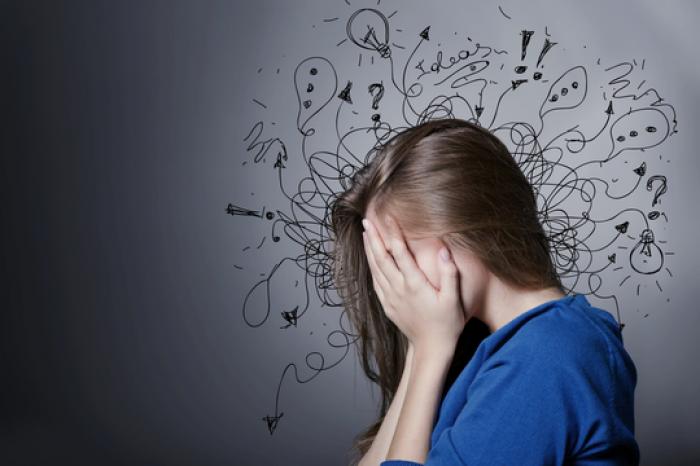Do you sometimes feel like you can’t control your thoughts or behavior? Are you worried about things that don’t seem to warrant such concern? You may be experiencing symptoms of anxiety. But what if those worries and concerns are so constant and intrusive that they keep you from living a normal life? In this case, you’re likely dealing with OCD. In this blog post, we will discuss the difference between OCD and anxiety, as well as the treatments available for OCD. We will also provide tips on how to reduce anxiety in your life. Finally, we will explore the hormones responsible for anxiety
Contents
What Is OCD?
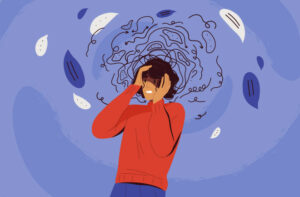
Obsessive-compulsive disorder (OCD) is a type of mental illness. People with OCD can have either obsessive thoughts and urges or compulsive, repetitive behaviors. Some people have both obsessions and compulsions. OCD is usually a chronic (long-lasting) condition, but it can also come and go. Obsessions are unwanted, intrusive thoughts, images, or urges that trigger intensely distressing feelings. compulsions are repetitive behaviors or mental acts that a person feels compelled to do to ease their anxiety or distress.
The following are some of the signs of OCD:
- Excessive hand washing, showering, or grooming
- Checking things (e.g., locks, appliances) excessively
- Counting, tapping, or repeating certain words or phrases
- Arranging objects in a particular way
- Hoarding objects
- Avoiding people or places
People with OCD often realize that their obsessions and compulsions are irrational, but they cannot control them. OCD can be very debilitating, preventing people from completing everyday tasks or participating in activities they enjoy.
What Is Anxiety?
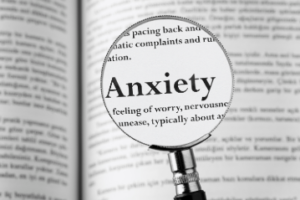
Anxiety is a normal emotion that we all experience at times. It’s the body’s natural response to stress or danger. However, people with anxiety disorders feel anxious most of the time, even when there is no apparent reason. This can make everyday activities very difficult to complete. People with anxiety disorders may also experience physical symptoms such as a racing heart, sweating, and difficulty breathing. The exact cause of anxiety disorders is unknown. However, several factors may contribute to the development of anxiety, including genetics, brain chemistry, and life events.
Here are the primary symptoms of anxiety:-
- Feeling restless or on the rim
- Easily tired
- Difficulty concentrating
- Irritability
- Muscle tension
- Sleep disturbance (difficulty falling or staying asleep, or restless, unsatisfying sleep)
Anxiety disorders are the most common mental health disorder in the United States, affecting 40 million adults. There are many different types of anxiety disorders, including generalized anxiety disorder, panic disorder, social anxiety disorder, and phobias.
What Is The Difference Between OCD And Anxiety?
Anxiety is a normal human emotion that we all experience at times. It becomes a problem when it’s out of proportion to the situation or lasts for a long time. It can also be problematic if it interferes with our daily lives. OCD, on the other hand, is a type of mental illness. People with OCD have obsessions and/or compulsions that are time-consuming and cause distress or interfere with their daily lives. For example, someone with OCD might be obsessed with germs and spend hours washing their hands each day. This would be considered excessive and beyond what’s necessary for good hygiene. It would also cause distress and interfere with the person’s daily life, making it difficult for them to go to work or school, for instance. So, while anxiety is a normal emotion, OCD is a mental illness.
Whether you have Anxiety or Obsessive Compulsive Disorder is determined by several factors:-
a) The Content Of Your Thoughts
The content of thoughts is much more irrational in OCD. The probability of the event that you are thinking about is negligible. The thoughts seem very bizarre. On the other hand, anxiety is caused by thoughts that have some reasonability and more probability.
b) The Stickiness Of Your Thoughts
Those with generalized anxiety often go through anxiety all day, multiple anxious thoughts run in their mind, one after the other. But contrary to OCD, the thoughts are much more realistic. In OCD, one is obsessed over a particular thought. The person tries to get rid of the thought but it seems very difficult. The thoughts are repetitive and persistent.
c) Involvement Of Certain Rituals Or Compulsions
Obsessive Compulsive Disorder is known for certain rituals that a person with OCD develops over time. Compulsions are a critical part of OCD and are not found in people with generalized anxiety. Examples of some compulsions are knocking on the doors, touching something, replaying conversations in your head, et cetera.
The approaches to treating OCD and Anxiety are different. The procedure used to treat Anxiety is insufficient to treat and deal with Obsessive Compulsive Disorders. Therapies are indeed used for both treatments but the minute procedures vary. Only a professional can make outa difference between the two and treat it.
Causes And Treatments For OCD
The following are some of the causes of Obsessive Compulsive Disorder (OCD) that have been identified by researchers:-
a) Biological Factors
It can be due to changes in the brain and body chemistry. Some research suggests that OCD may be caused by problems with the serotonin system in the brain. Serotonin is a neurotransmitter that plays an important role in mood and anxiety.
b) Environmental Factors
Certain life events or experiences may trigger OCD. For example, a traumatic event (such as a car accident) or a major stressor (such as a divorce) can trigger OCD. Social relations may result in OCD. For example, people who grew up in families where perfection was over-emphasized or criticism was common may be more likely to develop OCD.
c) Genetic Factors
There may be a genetic predisposition to OCD. It can run in families. If you have a close relative with OCD, you’re more likely to develop OCD yourself. This means that some people may be more likely to develop OCD because of their family history.
There are several effective treatments for OCD, including cognitive-behavioral therapy (CBT), exposure and response prevention (ERP), and medication. CBT helps people with OCD to identify and challenge their negative thoughts. ERP involves gradually exposing people to the things that trigger their OCD, without allowing them to engage in their compulsions. This can help people to overcome their fears and learn to control their OCD symptoms. OCD can also be controlled by medications. The most common type of medication used for OCD is a selective serotonin reuptake inhibitor (SSRI).
The following are some of the treatments for obsessive-compulsive disorder:-
Cognitive-Behavioural Therapy
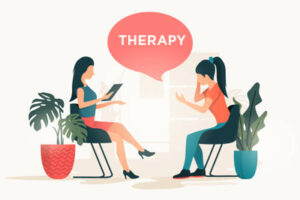
In this type of therapy, the therapist and the patient work together to identify the thoughts and behaviors that contribute to the patient’s OCD. The therapist then helps the patient to challenge and change these thoughts and behaviors. Exposure and Response Prevention is a type of CBT that involves gradually exposing people to the things that trigger their OCD. It prevents the person from engaging in their compulsions. This can help people to overcome their fears and learn to control their OCD symptoms.
Medications
The serotonin hormone is one of the main reasons for OCD. This chemical is responsible for communicating messages between the nerves. An imbalance of serotonin levels in the brain is thought to play a role in OCD. Medications that increase serotonin levels in the brain are often used to treat OCD. The most common type of medication used for OCD is a selective serotonin reuptake inhibitor (SSRI). SSRIs work by increasing levels of serotonin in the brain, which can help to reduce OCD.
Causes and Tips For Reducing Anxiety
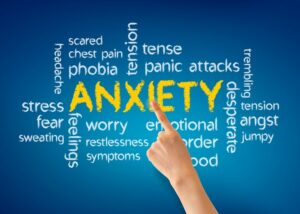
Anxiety is a type of worry that is continuous and stressful. Things that can trigger it are:-
- Upcoming events such as public speaking, interview, or exams.
- Problems in personal relationships.
- A medical condition such as heart disease, diabetes, or thyroid problems.
- Withdrawal from alcohol, drugs, or certain medications.
- Use of stimulants such as caffeine or nicotine.
- Traumatic events such as abuse, death of a loved one, or divorce.
- Genetics- Anxiety can run in families.
- Gender- Women are more likely to experience anxiety than men.
- Personality- People with certain personality types are more prone to anxiety.
There are several things you can do to reduce anxiety in your life:
- Get regular exercise: Exercise releases endorphins, which have mood-boosting effects.
- Eat a healthy diet: Eating nutritious foods helps to reduce stress and promote overall health.
- Get enough sleep: Sleep is essential for reducing stress and promoting physical and mental well-being.
- Practice relaxation techniques: Relaxation techniques, such as yoga or meditation, can help to calm the mind and body.
- Talk to a therapist: Talking to a therapist can help you to understand and manage your anxiety.
- Take medication: Medications are prescribed when therapies or oral sessions are not effective.
- Join a support group: Support groups can provide you with information and social support.
- Medical conditions such as heart disease, diabetes, or thyroid problems can also cause anxiety
The Distinction Between Them
In conclusion, it’s important to understand the difference between OCD and anxiety. While they may share some similarities, they are two distinct conditions. The thoughts primarily differ in both the content and the severity. OCD is much more intense and can be crippling, while anxiety is more manageable but can still be disruptive. If you think you may be suffering from either disorder, it’s important to seek professional help. There are many effective treatments available for both OCD and anxiety that can help you manage your symptoms and live a happier, more fulfilling life.
If you or someone you know is struggling with anxiety or OCD, please remember that there is help available. We provide the finest healthcare services tailored to your specific needs. An affordable online booking of therapy is possible or you can download our free OCD treatment app on Android or iOS.
